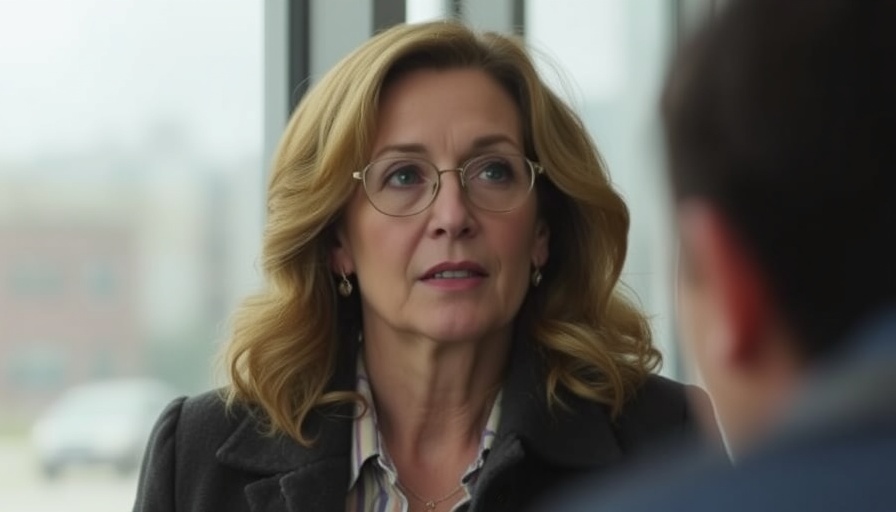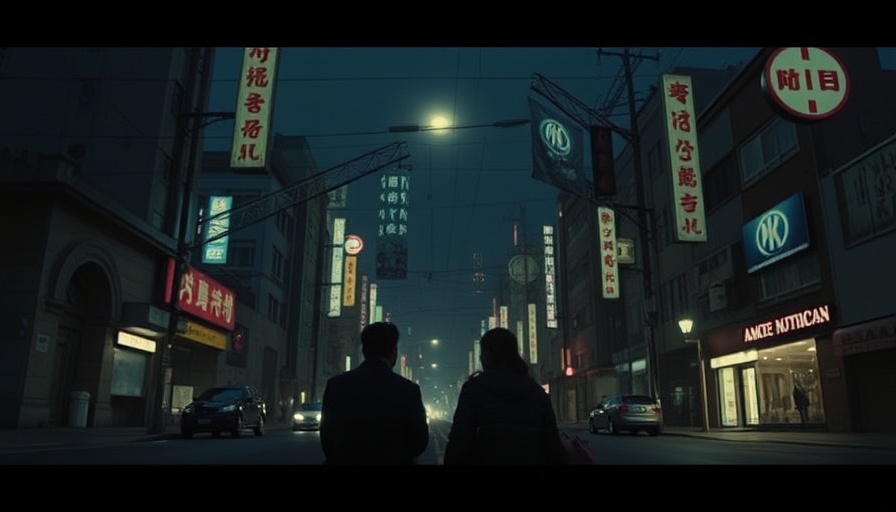
Julia Roberts Faces a Moral Dilemma in 'After the Hunt'
In the intricate tapestry of modern cinema that grapples with societal issues, Luca Guadagnino’s After the Hunt emerges as a fervent exploration of morality, power dynamics, and the complexities of the #MeToo movement. Headlined by Julia Roberts, who plays the multifaceted philosophy professor Alma Imhoff, the film has sparked conversations regarding its portrayal of delicate campus accusations and the blurred lines that define accountability.
Contextual Relevance: Where Truth Meets Fiction
Set at Yale University, After the Hunt intertwines fiction with real-world implications, suggesting a narrative inspired by actual events. The film opens with an intertitle, “It happened at Yale …,” immediately inviting viewers to ponder how this story resembles or diverges from known scandals in educational institutions. Perhaps it is this self-awareness of its cultural footprint that makes the screenplay, penned by Nora Garrett, both ambitious and convoluted, burdening it with more ideas than it can successfully convey.
A Cinematic Exploration of Modern Feminism
Alma Imhoff stands as a representative of contemporary feminist ideals—accomplished yet vulnerable—navigating a maze of loyalties that tests her integrity. As she contends with allegations made by her student Maggie Price (portrayed by Ayo Edebiri), the film attempts to dissect the complexities surrounding authority and consent. The charged atmosphere of campus life, juxtaposed with powerful men, intertwines with generational clashes over values. Such themes echo through exchange and counter-exchange, reminiscent of the works of playwrights like David Mamet or Neil LaBute.
What Could Be: A Flawed Narrative Structure
Despite its ambitious storyline, the film ultimately struggles with pacing and coherence. Critics have pointed out that Guadagnino’s reliance on melodramatic elements, such as an incessant and loud ticking sound designed to evoke suspense, often detracts from the performative subtleties of the narrative. As the characters meander through legal and ethical dilemmas, the film presents audience members with a challenge: are we to invest emotionally in these characters when their portrayals are left so decidedly unfinished?
Realities of Campus Culture: The Impact of Wealth and Influence
Central to this narrative is the manifest influence of wealth in academia, highlighted through Maggie's character, whose financial backing is a constant shadow over her interactions. Alma’s competition for tenure with her colleague Hank (Andrew Garfield) further underscores the rampant disparities in academia where privilege can sway opinions. As Guadagnino explores these socio-economic dynamics, he provides intriguing insights into both systemic flaws and personal moral failings.
Cultural Impact: A Mirror to Today's Society
The challenges of the #MeToo movement resonate deeply within the storyline, as Alma’s conflict can be seen as emblematic of the broader societal conversations regarding accountability and belief. In the backdrop, Alma’s decisions reflect the very real tension that many face today—where personal loyalty may clash with institutional allegiance and calls for systemic reform.
Conclusion: Reflection and Growth on Screen
In the final throes of After the Hunt, Guadagnino provides the audience with a framework to consider their own beliefs: where do we draw the lines of accountability, and how do personal relationships influence our decisions? While the film may falter in delivering its message with absolute clarity, it undeniably serves a purpose in inciting a dialogue about these pressing issues in our culture.
For those seeking to dive deeper into the world of cinema that reflects society’s complexities, ‘After the Hunt’ may serve both as a case study and a cautionary tale. With discussions surrounding accountability and moral integrity ever-present, films like this encourage profound reflection on the choices we make.
Join the conversation and reflect on the relevance of complex narratives in film today—what role do you think cinema plays in shaping societal values? Share your thoughts!
 Add Row
Add Row  Add
Add 




Write A Comment